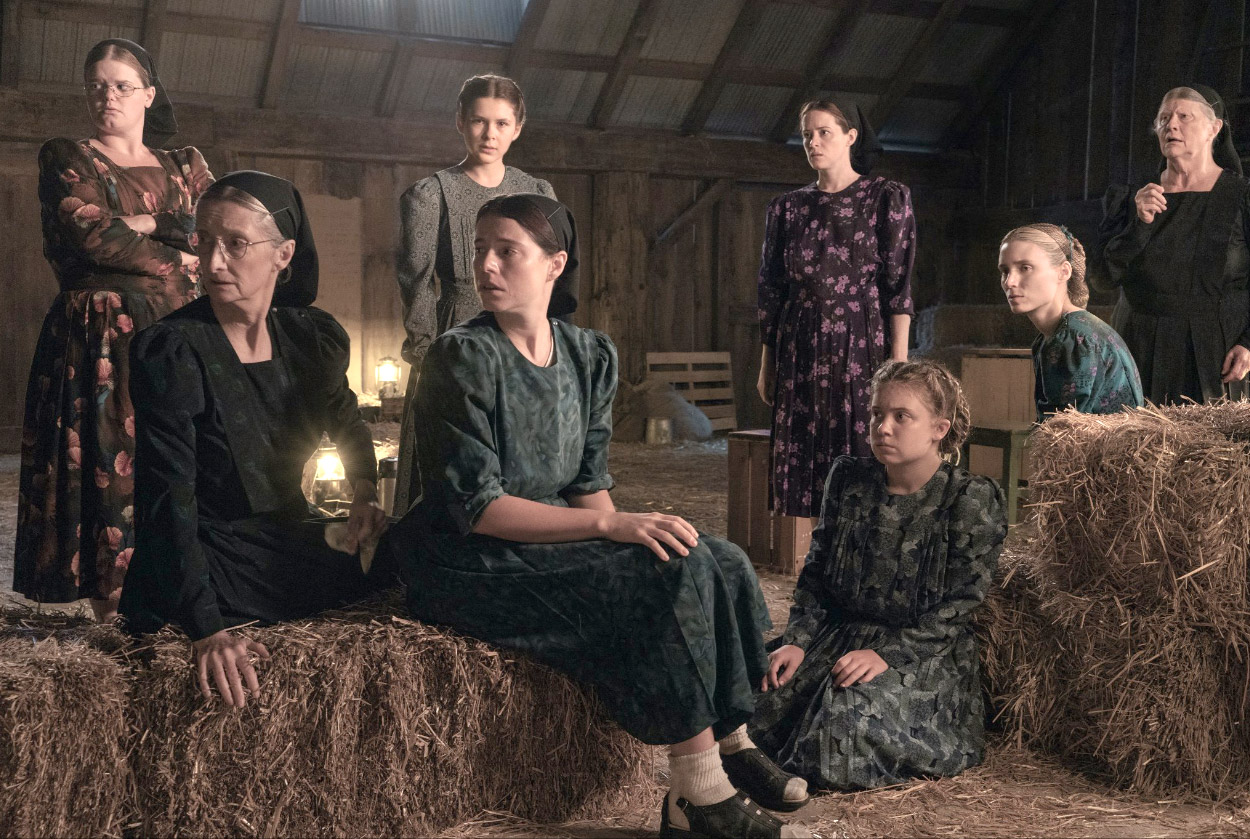In the film Women Talking, there have been attacks on the women in a small religious colony over a lengthy period, resulting in pregnancy, sickness, and even death. In this community, women have little to no rights. They don't know how to read or write because they don't attend school as girls. During the attacks, which the men in the community insist must have been the work of demons, the women and girls are drugged with anaesthetic meant for cattle and wake up not knowing what has happened.
After one of the attackers is finally identified when he's caught in the act, the rapists are all rounded up, but when Salome (Claire Foy) attacks the suspects with a scythe, the men are taken to the local authorities for their own protection. However, it appears that they may soon be released, as the other men sell off some of their livestock to raise the cash for bail money.
In the meantime, the women have been given an ultimatum. They must forgive their attackers or leave. This is final straw for the women. They gather together to decide whether to forgive the men and stay as if nothing happened; leave the community; or fight back.
How they are to fight back isn’t clear. As Salome states, if she stays, she will become a murderer. As the women talk and debate their choices, we learn what their circumstances are.
Ona (Rooney Mara) asks August (Ben Whishaw), the community's mild mannered schoolteacher, to take notes. He does so, because he's in love with Ona and has sympathy for the women’s situation. Ona is gentle and kind, and the two would make a wonderful match. However, Ona has no plans to get married. She is pregnant following a violent rape by one of the attackers and feels that if she were to marry, she would change and no longer be the person August fell in love with.
Salome is the fiercest of the women, and when we learn the full source of her anger, it comes as a shock. What was done to her family was a heinous act and she is determined that it never happen again.
If you're wondering whether women talking in a barn for much of the duration of a film might be tedious, director Sarah Polley makes the experience one of wonder. The shots of the women and adolescent girls as they talk, listen and absorb each other’s thoughts, is the work of a skilled artist. Together with cinematographer Luc Montpellier and editors Christopher Donaldson and Roslyn Halloo, Polley has crafted a film in which the lighting and the combination of shots work together to create something that makes the audience feel as if they’re not just an onlooker, but almost a participant. It's enthralling to hear the women, who are intelligent and wise despite having no formal schooling, as they mull over the position they’ve been put in. Each of their ideas and thoughts are enlightening.
Midway through the movie, a census taker drives through the community, with "Daydreamer" by the Monkees blasting from his radio. Over a loudspeaker, he asks everyone to register for the census. The women, of course, ignore him, except for two teenagers who are thrilled about seeing a newcomer, but the scene gives away what year this takes place in (which comes as a surprise), and also provides an upbeat feeling — the lively song can’t help but lift the spirits.
The cast is incredibly well chosen for their roles. Despite the reserved nature of the character she plays, Rooney Mara lights up the screen with her quiet, reassuring smile. Claire Foy flawlessly plays her character as a force to be reckoned with, while Jessie Buckley, playing a woman who has an abusive husband, is the most conflicted, due to her circumstances. Sheila McCarthy beautifully plays one of the older women, who is warm and caring, but is considered a little batty by the others as she more than once tries to compare the experiences of her two mares to what's happening to them, while Judith Ivey embodies warmth as another older women who's also a mother and a grandmother, who has much to consider as this affects many of her loved ones.
The movie, which has already won numerous awards and nominations, including six nods from the Critics Choice Association, is based on the book of the same name by Miriam Toews, and despite the setting, it has a contemporary message that will entertain all, regardless of gender or culture. ~Alexandra Heilbron
5 out of 5 stars.

I cannot find where it is playing. I live in Vacaville, CA
Is it coming to San Francisco? Was it here and I missed it? Oakland? Marin?
In California, it's currently playing in Los Angeles, Burbank, Sacramento, Marino Del Ray, Canoga Park and La Jolla.
where is this film playing in Florida? I live near Melbourne on the East Coast. near Cape Canaveral.
Women Talking is currently playing in the following states: Arizona, California, Colorado, District of Columbia, Illinois, New York, Tennessee, Texas, and Wisconsin